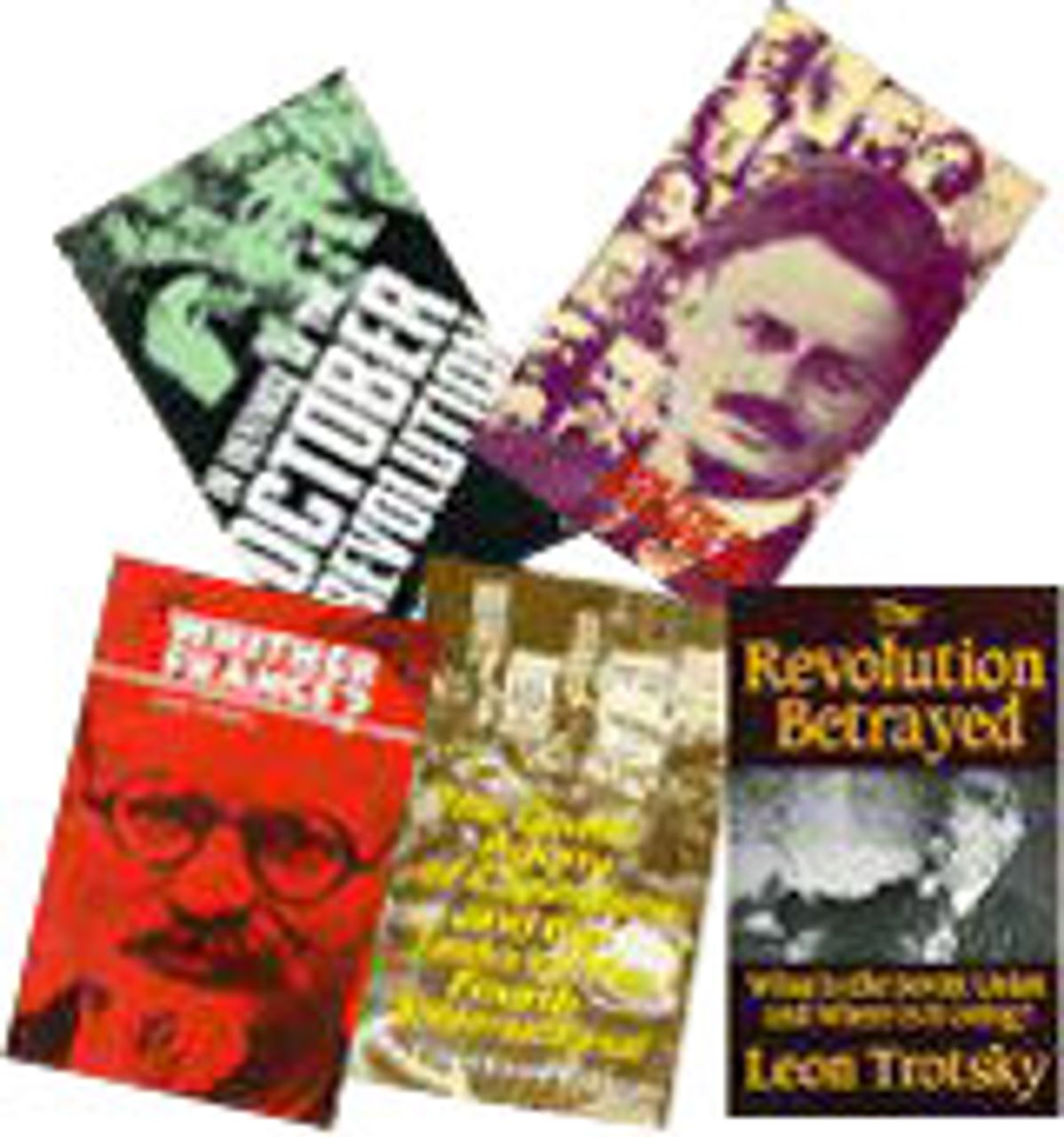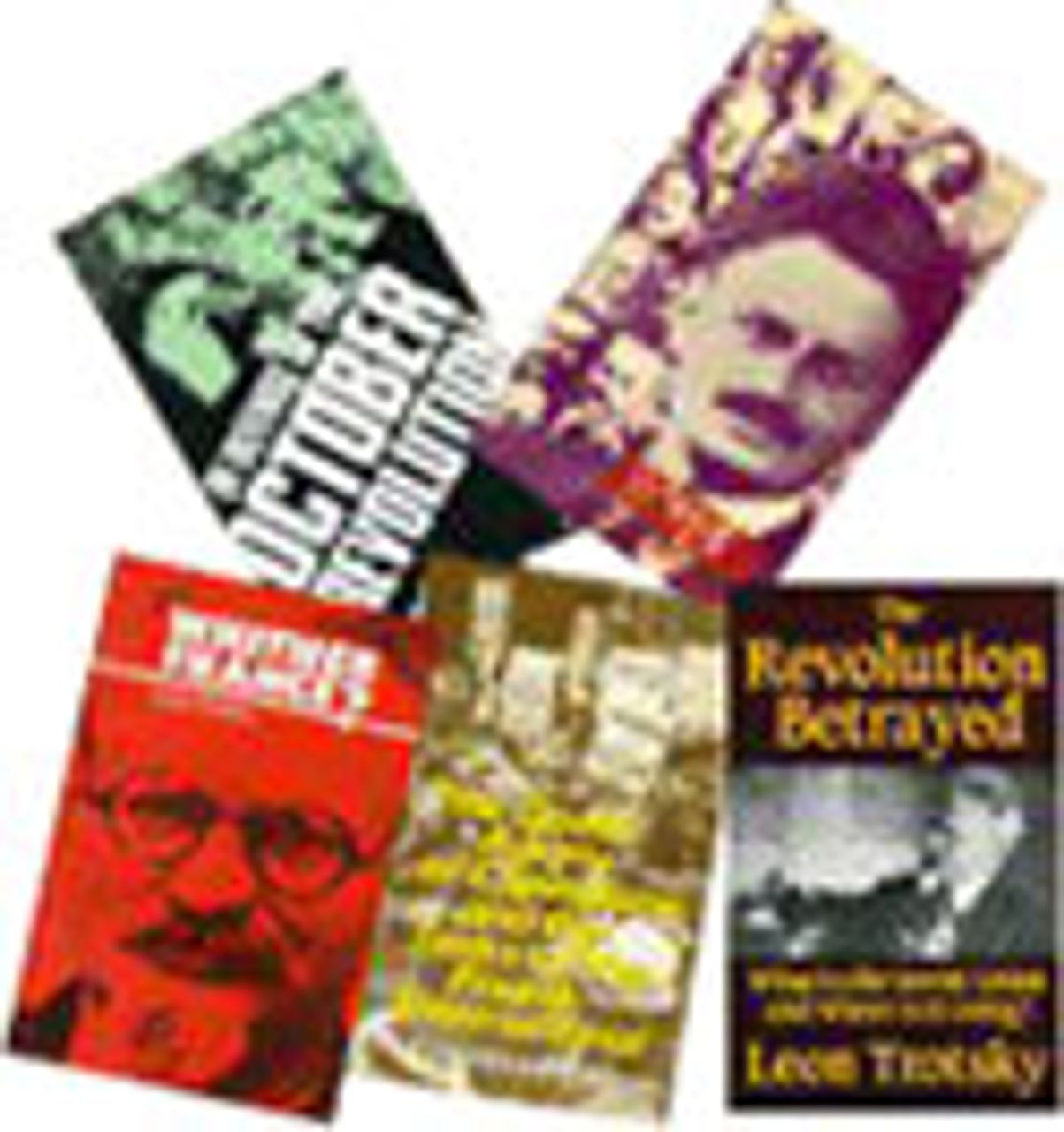 Mehring Books has put together 11 bundles of Marxist literature, to provide you with a great holiday gift or a significant addition to your own library at considerable savings. Over the next weeks, we will look inside some of the works contained in each bundle. We urge our readers to take advantage of this wonderful holiday sale.
Mehring Books has put together 11 bundles of Marxist literature, to provide you with a great holiday gift or a significant addition to your own library at considerable savings. Over the next weeks, we will look inside some of the works contained in each bundle. We urge our readers to take advantage of this wonderful holiday sale.
Our first feature is the Selected Works of Trotsky Bundle, containing five titles for $25.
Below, WSWS staff writer Tom Eley introduces The Revolution Betrayed, Trotsky’s indispensable analysis of Soviet society, written in 1936 just before the first Moscow Trial.
Also included in the bundle:
- Whither France, a collection of writings covering the period from 1934 through the revolutionary upheaval of 1936. Trotsky provides a devastating critique of the policies of the French social democrats and Stalinists.
- Political Profiles, Trotsky’s indelible portraits of some of the towering figures of pre-war social democracy, including Rosa Luxemburg, Karl Liebknecht and George V. Plekhanov.
- In Defense of the October Revolution, Trotsky’s last public speech before a large audience of Social Democratic students in Copenhagen in 1932. (For a clip of his address, see www.youtube.com/watch?v=kBLnTNL5ZPQ.)
- The Transitional Program, the founding document of the Fourth International in 1938
Tom Eley: The Revolution Betrayed is among the greatest political tracts of the 20th century
29 January 2010
I’ve recently been inspired to read again Leon Trotsky’s The Revolution Betrayed, which surely ranks among the greatest political works of the 20th century. The book presents the most devastating rebuke to Trotsky’s recent biographers, who have attempted to falsify his long struggle against Stalinism. Written in 1936 from exile in the heat of his battle with Stalin—who at the time was preparing the first of the great purges of the Old Bolshevik leadership—Trotsky subjected the Soviet Union to what remains to this day its most accurate and prescient analysis.
Trotsky’s central argument in The Revolution Betrayed has been thoroughly vindicated. With painstaking analysis laid out in eleven chapters, Trotsky showed that the Soviet Union was neither socialist nor capitalist, but a transitional society with an as-yet undetermined fate. Either the working class would overthrow the ruling bureaucracy in a political revolution—an outcome that would depend upon the ability of the international working class to break from the grip of Stalinism—or the bureaucracy would eventually play the critical role in the destruction of the Soviet Union. This thesis was tragically confirmed with the bureaucracy’s cultivation of capitalism under Gorbachev in the 1980s (‘glasnost’, perestroika) and with the disintegration of the USSR in 1991. This volume was produced as these latter events were still unfolding, with what itself turned out to be a prescient introduction by Socialist Equality Party chairman David North.
The introduction serves the book well, describing Trotsky’s method while placing his analysis in historical context and tracing its political implications. I hope and I believe The Revolution Betrayed will find a wide readership in coming years, as it becomes increasingly urgent to understand the great political problem of the 20th century—the crisis of the revolutionary leadership—in order to overcome the challenges of the 21st. For these and many other reasons, I highly recommend this volume.

